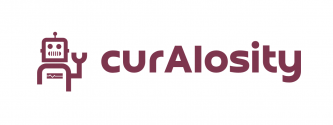Table of Contents
- 1 Artificial intelligence could save costs in healthcare industry
- 1.1 Enhancing Diagnostic Accuracy
- 1.2 Precision Medicine and Personalized Treatment Plans
- 1.3 Optimizing Healthcare Operations
- 1.4 Drug Discovery and Development
- 1.5 Ethical Considerations and the Human Touch
- 1.6 Conclusion – Artificial intelligence could save costs in healthcare industry
- 1.7 FAQs about Artificial Intelligence in Healthcare and Cost Savings
Artificial intelligence could save costs in healthcare industry
In recent years, artificial intelligence (AI) has emerged as a powerful and transformative technology, with the potential to revolutionize various industries. Among the sectors where AI’s impact could be most profound is healthcare. Artificial intelligence could save costs in healthcare industry. The fusion of AI and healthcare promises to bring about significant improvements in patient care, diagnostic accuracy, treatment outcomes, and cost efficiency. In this article, we will explore the remarkable ways AI is reshaping the healthcare industry and how it could save costs while enhancing patient outcomes.
Enhancing Diagnostic Accuracy
One of the most exciting applications of AI in healthcare lies in its ability to enhance diagnostic accuracy. AI-powered algorithms can analyze vast amounts of medical data, including patient records, images, and lab results, with unmatched precision and speed. Artificial intelligence could save costs in healthcare industryBy sifting through this wealth of information, AI can identify patterns and trends that might escape human observation, leading to earlier and more accurate diagnoses.
For instance, AI algorithms have shown remarkable success in detecting abnormalities in medical imaging, such as X-rays and MRIs. Radiologists aided by AI can spot minute details that might be overlooked in a conventional analysis, reducing the likelihood of misdiagnosis and streamlining the diagnostic process.
Precision Medicine and Personalized Treatment Plans
AI’s analytical prowess extends beyond diagnostics. It also plays a pivotal role in the realm of precision medicine, where treatment plans are tailored to each patient’s unique genetic makeup and medical history. Artificial intelligence could save costs in healthcare industry. Artificial intelligence could save costs in healthcare industry. By analyzing vast genomic datasets and clinical information, AI can identify genetic markers and disease-specific factors that influence an individual’s response to treatment.
As a result, physicians can create personalized treatment plans that maximize therapeutic efficacy while minimizing potential side effects. This targeted approach to medicine not only leads to better patient outcomes but also reduces the need for trial-and-error treatments, thereby saving costs and resources.
Optimizing Healthcare Operations
AI’s cost-saving potential is not limited to improving patient care. It also extends to optimizing various healthcare operations. Administrative tasks, such as appointment scheduling, billing, and insurance processing, can be streamlined using AI-powered automation systems. By minimizing manual intervention, healthcare institutions can reduce administrative overheads, allocate resources more efficiently, and enhance overall productivity.
Additionally, AI-driven predictive analytics can play a crucial role in optimizing hospital workflows. By analyzing historical data, patient trends, and resource utilization patterns, AI can forecast patient admission rates, enabling hospitals to adjust staffing levels and resource allocation accordingly. This proactive approach helps prevent overstaffing or shortages, leading to cost savings and improved patient care. Artificial intelligence could save costs in healthcare industry.
Drug Discovery and Development
The process of discovering and developing new drugs is notoriously time-consuming and expensive. However, AI is revolutionizing this aspect of healthcare as well. AI algorithms can rapidly analyze vast databases of chemical compounds and predict their potential for therapeutic use. By shortening the drug discovery timeline and identifying promising candidates more efficiently, AI can significantly reduce research and development costs in the pharmaceutical industry.
Ethical Considerations and the Human Touch
While the potential benefits of AI in healthcare are tremendous, it is crucial to address ethical considerations. As AI becomes increasingly involved in clinical decision-making, questions arise about transparency, accountability, and bias. It is essential to develop AI systems that are explainable and can be audited for fairness and accuracy.
Furthermore, despite AI’s capabilities, the human touch remains irreplaceable in healthcare. The physician-patient relationship is built on empathy, trust, and understanding, and AI should complement, not replace, this essential aspect of medical care. Artificial intelligence could save costs in healthcare industry. AI should empower healthcare professionals to make more informed decisions and provide more personalized care, fostering a collaborative approach to patient well-being.
Conclusion – Artificial intelligence could save costs in healthcare industry
Artificial intelligence is a game-changer in the healthcare industry, offering a vast array of opportunities to save costs and improve patient outcomes. From enhancing diagnostic accuracy and enabling personalized treatment plans to streamlining healthcare operations and revolutionizing drug discovery, AI is transforming the landscape of medicine. As we continue to embrace AI’s potential, it is vital to maintain a balance between technological advancements and human-centric care, ensuring that the fusion of AI and healthcare leads to a healthier and more equitable future.
FAQs about Artificial Intelligence in Healthcare and Cost Savings
- What is the potential cost-saving impact of artificial intelligence in the healthcare industry?
- Answer: According to a report by McKinsey and Harvard researchers, broader adoption of artificial intelligence (AI) in healthcare could lead to annual savings between $200 billion and $360 billion. These savings would result from AI use cases employing current technologies that are attainable within the next five years, without compromising quality or access.
- What are the major barriers to the widespread adoption of AI in healthcare?
- Answer: The adoption of AI in healthcare has been limited due to several factors. One of the significant barriers is a lack of trust among patients and doctors in AI-based technologies. Heterogeneous data and misaligned incentives also pose challenges to broader AI implementation in the industry. Artificial intelligence could save costs in healthcare industry.
- What are the non-financial benefits of adopting AI in healthcare?
- Answer: Beyond the potential cost savings, the broader adoption of AI in healthcare can bring a range of non-financial benefits. These include improved healthcare quality, increased access to care, and enhanced patient and doctor satisfaction. AI has the capacity to optimize clinical operations, detect adverse events, and streamline referral management, leading to better patient outcomes.
- Which healthcare sectors stand to benefit the most from AI adoption?
- Answer: AI adoption can yield substantial benefits across various healthcare sectors. For hospitals, the cost savings primarily come from improved clinical operations, quality, and safety. Artificial intelligence could save costs in healthcare industry. Physician groups could leverage AI for continuity of care and referral management. Health insurers would see savings from AI use cases that improve claims management, provider relationship management, and prevention of readmissions.
- What is the current state of AI adoption in clinical settings, and what is the outlook for the future?
- Answer: Although AI’s potential in healthcare is widely recognized, its actual adoption in clinical settings remains relatively low. However, experts believe that the future is promising, and broader AI adoption is likely in the near term. Artificial intelligence could save costs in healthcare industry. Artificial intelligence could save costs in healthcare industry. The Food and Drug Administration (FDA) has been accelerating approvals of medical AI tools, signaling growing acceptance. As more real-world evidence supporting AI’s efficacy emerges, 2023 is expected to be an inflection point for AI adoption.

